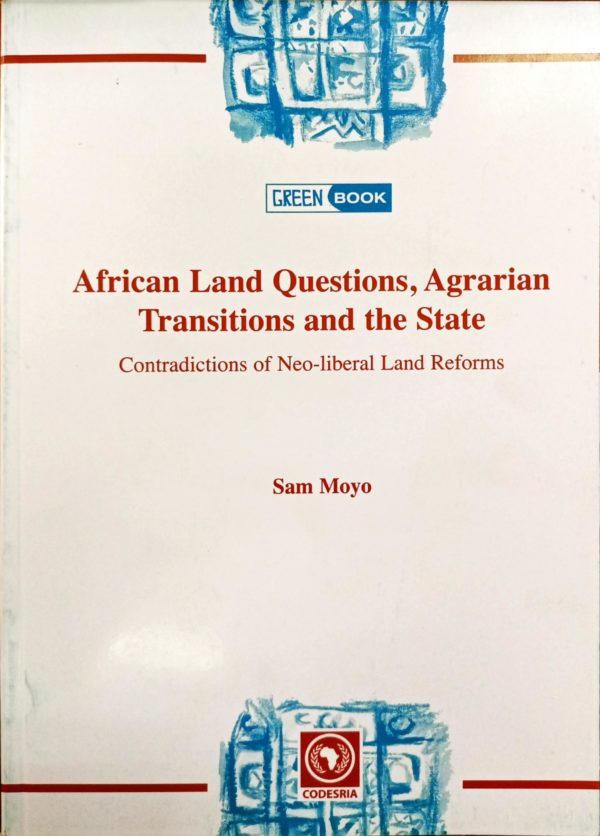African Land Questions, Agrarian Transition and the State, Contradictions of Neo-liberal Land Reforms (Printed)
African Land Questions, Agrarian Transition and the State, Contradictions of Neo-liberal Land Reforms (Printed)
This empirically grounded study provides a critical reflection on the land question in Africa, research on which tends to be tangential, conceptually loose and generally inadequate. It argues that the most pressing research concern must be to understand the precise nature of the African land question, its land reforms and their effects on development. To unravel the roots of land conflicts in Africa requires thorough understanding of the complex social and political contradictions which have ensued from colonial and post-colonial land policies, as well as from Africa’s ‘development’ and capital accumulation trajectories, especially with regard to the land rights of the continent’s poor. The study thus questions the capacity of emerging neo-liberal economic and political regimes in Africa to deliver land reforms which address growing inequality and poverty. It equally questions the understanding of the nature of popular demands for land reforms by African states, and their ability to address these demands under the current global political and economic structures dictated by neo-liberalism and its narrow regime of ownership. The study invites scholars and policy makers to creatively draw on the specific historical trajectories and contemporary expression of the land and agrarian questions in Africa, to enrich both theory and practice on land in Africa.
Scholars in the Market Place : The Dilemmas of Neo-Liberal Reform at Makerere University, 1989-2005 (Printed)
Scholars in the Market Place : The Dilemmas of Neo-Liberal Reform at Makerere University, 1989-2005 (Printed)
Scholars in the Marketplace is a case study of market-based reforms at Uganda’s Makerere University. With the World Bank heralding neoliberal reform at Makerere as the model for the transformation of higher education in Africa, it has implications for the whole continent. At the global level, the Makerere case exemplifies the fate of public universities in a market-oriented and capital friendly era. The Makerere reform began in the 1990s and was based on the premise that higher education is more of a private than a public good. Instead of pitting the public against the private, and the state against the market, this book shifts the terms of the debate toward a third alternative than explores different relations between the two. The book distinguishes between privatisation and commercialisation, two processes that drove the Makerere reform. It argues that whereas privatisation (the entry of privately sponsored students) is compatible with a public university where priorities are publicly set, commercialisation (financial and administrative autonomy for each faculty to design a market-responsive curriculum) inevitably leads to a market determination of priorities in a public university. The book warns against commercialisation of public universities as the subversion of public institutions for private purposes.



